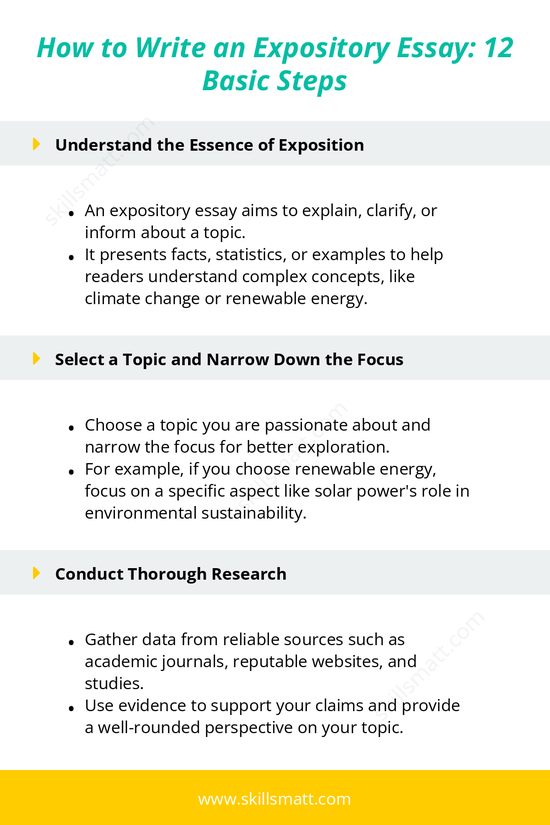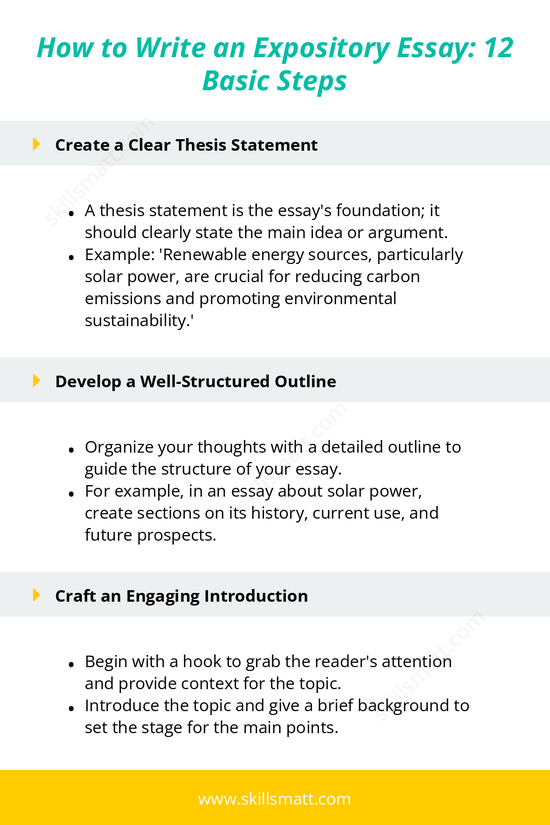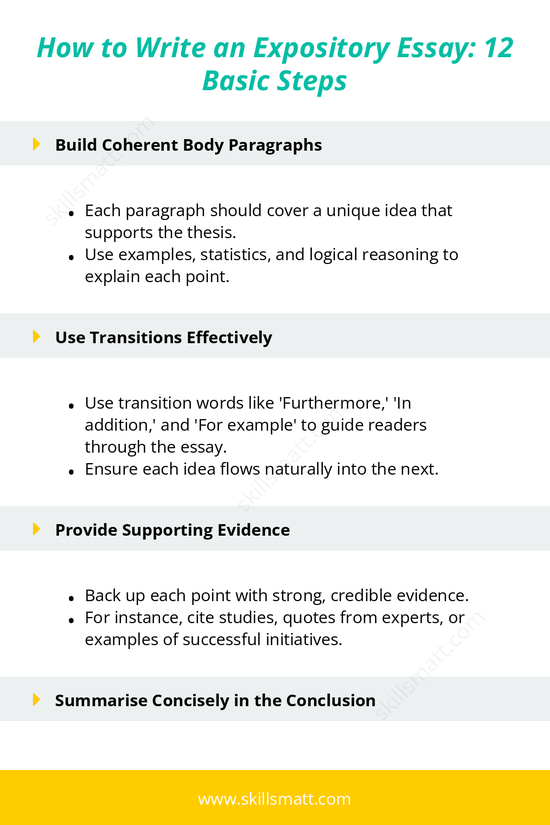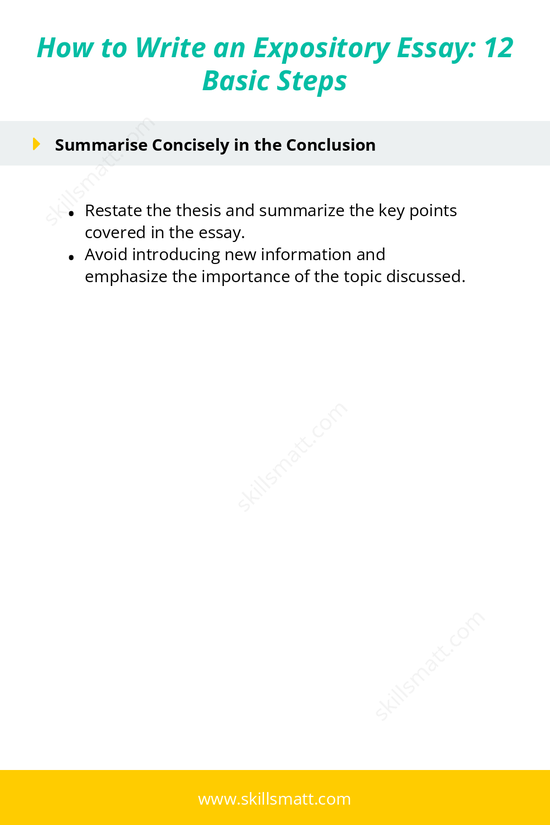How to Write an Expository Essay: 12 Basic Steps
- Understand the Essence of Exposition: An expository essay aims to explain, clarify, or inform about a topic. It presents facts, statistics, or examples to help readers understand complex concepts, like climate change or renewable energy.
- Select a Topic and Narrow Down the Focus: Choose a topic you are passionate about and narrow the focus for better exploration. For example, if you choose renewable energy, focus on a specific aspect like solar power's role in environmental sustainability.
- Conduct Thorough Research: Gather data from reliable sources such as academic journals, reputable websites, and studies. Use evidence to support your claims and provide a well-rounded perspective on your topic.
- Create a Clear Thesis Statement: A thesis statement is the essay's foundation; it should clearly state the main idea or argument. Example: 'Renewable energy sources, particularly solar power, are crucial for reducing carbon emissions and promoting environmental sustainability.'
- Develop a Well-Structured Outline: Organize your thoughts with a detailed outline to guide the structure of your essay. For example, in an essay about solar power, create sections on its history, current use, and future prospects.
- Craft an Engaging Introduction: Begin with a hook to grab the reader's attention and provide context for the topic. Introduce the topic and give a brief background to set the stage for the main points.
- Build Coherent Body Paragraphs: Each paragraph should cover a unique idea that supports the thesis. Use examples, statistics, and logical reasoning to explain each point.
- Use Transitions Effectively: Use transition words like 'Furthermore,' 'In addition,' and 'For example' to guide readers through the essay. Ensure each idea flows naturally into the next.
- Provide Supporting Evidence: Back up each point with strong, credible evidence. For instance, cite studies, quotes from experts, or examples of successful initiatives.
- Summarize Concisely in the Conclusion: Restate the thesis and summarize the key points covered in the essay. Avoid introducing new information and emphasize the importance of the topic discussed.
- Revise and Edit Thoroughly: Review your essay for clarity, coherence, and consistency. Check for grammatical errors and refine your argument where necessary.
- Finalize with a Strong Conclusion: End with a strong closing statement that reinforces your thesis and the significance of the topic. Leave the reader with a memorable thought or call to action.




